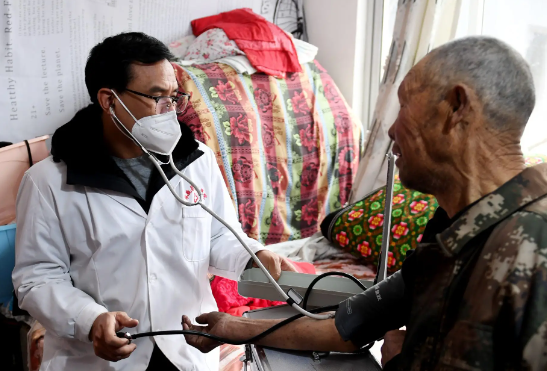New Zealand’s healthcare system has consistently ranked among the best in the world, rivaling that of the UK and the USA. The country has been committed to providing access to health maintenance services to all citizens and residents, focusing on achieving maximum benefits at the least cost possible for recipients.
It’s worth pointing out that the Kiwi nation has been all about the welfare of its people all across the board, including encouraging healthy gambling for those who enjoy the activity. Player-friendly iGaming websites such as Mr Bet NZ offer Kiwis vast opportunities to relish their favorite gambling games responsibly whenever they have time to kill. The platform restricts the activity to players older than 18 and abides by international social responsibility regulations. There are also tools on the platform that members can use to keep their gambling in check and ensure things never get out of control.
The nation’s affinity towards proper healthcare for its people can be traced back to the 1938 Social Security Act. It was a landmark resolution that ensured that regardless of their social standing, all people would access healthcare for free or at a very low cost. Nearly a century later, the vision has not changed, as the system still seeks to mitigate inequities in the sector. Of course, like any other developed country, New Zealand has had to adapt to the changing landscape witnessed worldwide over the years. For Kiwis, healthcare is among the priority areas that always arise whenever elections approach, and electoral candidates must address critical issues.
Overview of New Zealand’s Healthcare System
New Zealand’s health maintenance is anchored on its promise of a universal public system. The system rides on a tax-funded initiative for the public sector, which accounts for about 80% of the entire system, while private health maintenance makes up the remaining 20%. Unsurprisingly, a majority of residents opt for the public health maintenance option as going private requires patients to seek healthcare insurance, which is quite costly.
Challenges Affecting the New Zealand Health Sector
Healthcare is a very sensitive subject for any country and one of the most contentious topics on social, economic, and political fronts. That said, there is no perfect system, especially when most services hinge on a public health maintenance. While New Zealand has strived to address most concerns raised over the ability to effectively serve all Kiwis, some of the problems run pretty deep and may take time to solve. They include:
- To limit the number of patients who get to see a specialist, the system mostly requires patients first to be examined by a general practitioner before they can be referred to a specialist. While this may be effective in ensuring that those with critical conditions are prioritized in specialist care, it has proven inconvenient in several cases;
- For a ‘non-urgent’ GP appointment, the patient may wait up to 5 weeks, which may be longer if some of the doctors at a facility are unavailable. The waiting time may be more than three years for scheduled surgical procedures (e.g., orthopaedic or minor operations);
- An issue that has often come up in surveys targeting residents who have sorted some form of healthcare service regularly is the lack of personalized services in the New Zealand Healthcare system. This is especially so in the public sector, which the government has admitted faces workforce shortages;
- Patients who visit the same facility on different occasions may require prior authorization to see an actual doctor, who may differ from one they had seen on earlier visits. Thus, patients have complained of the difficulty in maintaining the same practitioner over a while and have, therefore, had to recount their medical history each time they were introduced to a different doctor.
Read Also: Complete Guide to THC Syrup
Universal Healthcare: A Kiwi Commitment
Any country’s healthcare system plays a pivotal role in determining the well-being of its citizens and the overall socio-economic landscape. In the case of New Zealand, its health maintenance system stands out and is a testament to the nation’s commitment to ensuring all citizens and residents receive quality services. But then, like any other system catering to the public, there still exist challenges that residents continue to face.
Thankfully, to address some of the challenges in the health maintenance, the government initiated new reforms in 2022. These improvements seek to use a targeted approach to tackle the issues and concerns that have plagued the sector for decades. Nonetheless, despite the challenges faced by the industry and especially consumers, the fact that it’s accessible to all is a plus, and the recent reforms shed some light on what the future holds.

